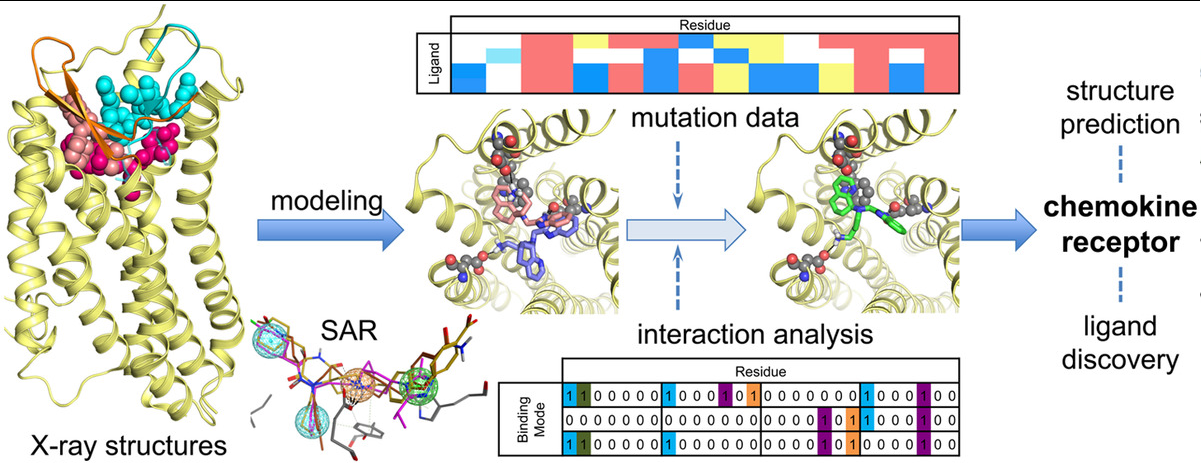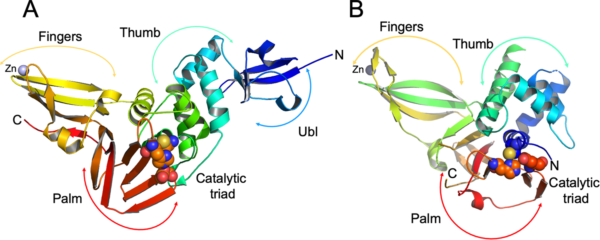Chemokine receptors play a crucial role in immune responses and inflammation, making them attractive therapeutic targets for various diseases. The development of a Chemokine Receptor-Targeted Library, consisting of ligands and inhibitors specifically designed to modulate these receptors, offers significant opportunities for therapeutic intervention. This article explores the significance of chemokine receptors, the design principles behind the library, and the potential of ligands and inhibitors in targeting these receptors for therapeutic purposes.
Chemokine Receptors: Key Players in Immune Regulation:
Chemokine receptors are a family of G-protein coupled receptors (GPCRs) involved in directing immune cell migration, regulating inflammatory responses, and maintaining tissue homeostasis. Dysregulated chemokine receptor signaling is associated with various diseases, including cancer, autoimmune disorders, and inflammatory conditions. Targeting these receptors offers valuable opportunities to modulate immune responses and treat these diseases effectively.
Design Principles of the Chemokine Receptor-Targeted Library:
The design of the Chemokine Receptor-Targeted Library is guided by a deep understanding of chemokine receptor structure and function. Structural biology techniques, such as X-ray crystallography and cryo-electron microscopy, help elucidate the three-dimensional structure of chemokine receptors. This information assists in the rational design of ligands that can selectively bind to specific chemokine receptor subtypes, targeting their activation or blocking their function.
Ligands: Unlocking Receptor Activation and Signaling:
Ligands in the Chemokine Receptor-Targeted Library are designed to specifically activate chemokine receptors, mimicking the action of endogenous chemokines. These ligands can promote receptor activation, downstream signaling pathways, and immune cell recruitment to specific tissues or sites of inflammation. By modulating specific chemokine receptor activity, ligands offer the opportunity to enhance immune responses or dampen excessive inflammation in a controlled manner.
Inhibitors: Blocking Receptor Function and Inflammation:
Inhibitors within the Chemokine Receptor-Targeted Library are designed to selectively bind to chemokine receptors, preventing the binding of endogenous ligands and subsequent receptor activation. This blockade of chemokine receptor function can disrupt immune cell migration, reduce inflammation, and restrict the progression of certain diseases. Chemokine receptor inhibitors hold promise as potential therapeutics for conditions characterized by excessive immune cell infiltration or chronic inflammation.
Screening Strategies and Target Validation:
High-throughput screening approaches, including cell-based assays, fluorescence-based methods, and radioligand binding assays, are employed to identify ligands and inhibitors within the Chemokine Receptor-Targeted Library. These screening efforts involve evaluating the compounds for their binding affinity, selectivity towards specific receptor subtypes, and functional effects on immune cells. Rigorous target validation studies in preclinical models further confirm the therapeutic potential of the identified ligands.
Therapeutic Potential and Challenges:
The Chemokine Receptor-Targeted Library represents a valuable resource for the development of therapeutics targeting chemokine receptors. Ligands and inhibitors offer potential applications in various diseases, including cancer metastasis, inflammatory bowel disease, and autoimmune disorders. However, challenges remain in optimizing the selectivity, pharmacokinetic properties, and safety profiles of the identified compounds. Through continued research efforts and innovative strategies, these challenges can be addressed to unlock the therapeutic potential of the library.
Conclusion:
The Chemokine Receptor-Targeted Library provides an exciting platform for the discovery and development of inhibitors that specifically modulate chemokine receptors. By targeting these receptors, therapeutic interventions can regulate immune responses and inflammation, leading to improved outcomes in various diseases. The library offers promising opportunities for precision medicine and personalized therapies by enabling the development of tailored strategies to target specific chemokine receptor subtypes. Continued research, innovation, and collaborations will further advance the field and enhance our ability to utilize the Chemokine Receptor-Targeted Library in the development of novel therapeutics.




